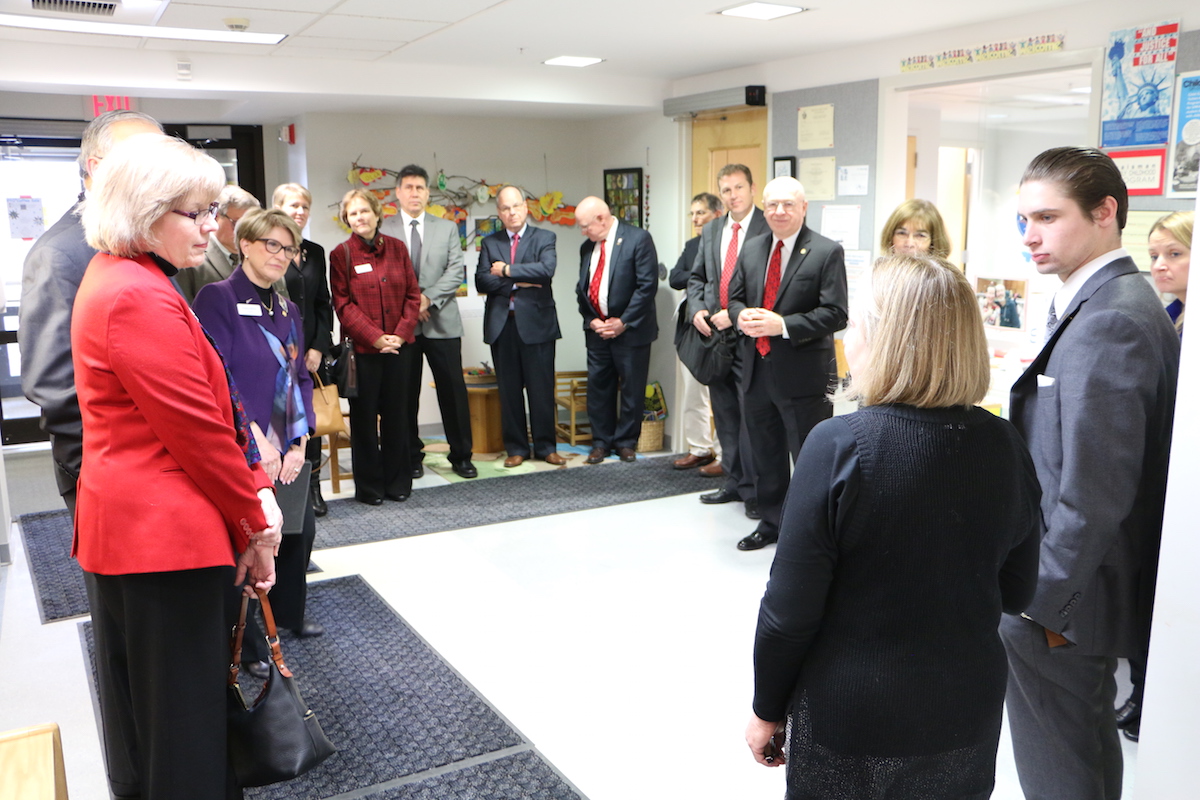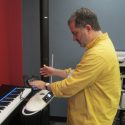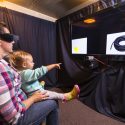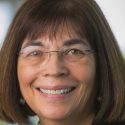UW System Regents, officials tour Waisman Center
UW–Madison’s Waisman Center is known for its groundbreaking work helping people with developmental disabilities and neurodegenerative disorders. On Thursday, Dec. 10, several members of the UW System Board of Regents and the system president and his leadership team had the chance to tour the building and meet many of the people who help the center carry on its work.
“We really need to take this opportunity to showcase a few of the places that we think of as not just best in class in terms of anywhere nationally but also the world,” Chancellor Rebecca Blank said.
The center is named after Harry Waisman, the pioneering Wisconsin pediatrician and biochemist whose work helped inform our understanding of phenylketonuria or PKU, an inherited form of mental retardation, and its prevention. Like Waisman’s early work, the basic science conducted at the center has helped identify key risk factors for developmental disabilities as well as treatments, and has also shed light on the genetic and environmental causes that give rise to such conditions.
Blank spoke of the innovations and economic impact the center has had since it was founded in 1973. When she first arrived at UW–Madison, everyone said she needed to visit the Waisman Center, Blank said.
“This was one of the first models for interdisciplinary research in the world,” Blank said. “This place continues to be on the cutting edge.”
The Centers for Disease Control estimates that as many as one in six children in the United States are affected by a developmental disability, which can be cognitive or physical. Such conditions run the gamut from autism and Down syndrome to the kinds of intellectual deficits once referred to as mental retardation. Generally, such conditions are expected to last a lifetime.
The center sees more than 4,000 patients a year. While its work is vast, Waisman Center Director Albee Messing explained the emphasis of the three C’s: causes, consequences, cures and treatments.
“People look to us as a source of information and hope,” Messing said.
Vice Chancellor for Research and Graduate Education Marsha Mailick helped provide an overview of the center’s history during the tour, which included visits with Derek Hei, director of the Waisman Clinical Biomanufacturing Facility; Joan Ershler, director of the Waisman Early Childhood Program; and Dave Gamm, Waisman Center investigator, professor of ophthalmology and visual sciences and director of the McPherson Eye Research Institute.
“It’s just amazing. It gives new meaning to the words ‘cutting edge,’” Regent Janice Mueller said. “As a parent, as a member of the Madison area community, as a regent, this place is such an asset to have.”




